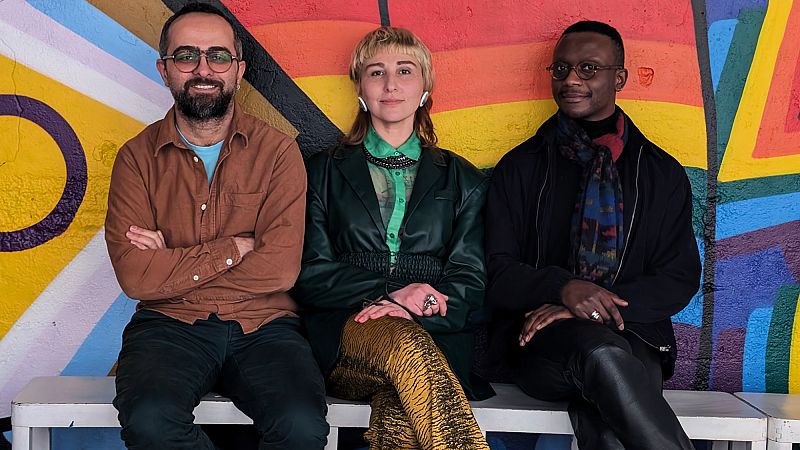'We're in hunting mode': Brussels is set to become home for Pride Museum

Brussels is set to welcome its first Pride Museum, but the location has not been decided yet.
The international team with 12 nationalities has been planning the museum for the past two years.
Belgium's capital was the chosen place as it aims to become the queer capital of Europe, after having the landmark of being the second country in the world to legalise the rights of same-sex couples to marry.
"Establishing the Pride Museum in Brussels will not only enrich the city's cultural landscape but also stand as an iconic symbol of its commitment to human rights and representation," the group stated in the museum's website.
The Pride Museum has applied for the space of the recently closed MIMA museum in Molenbeek, but other location options are being assessed too.
"At the moment we are in hunting mode," Pride Museum co-founder Giorgi Tabagari said. "We are looking at Ixelles, the EU district and the canal. Normally, the places where people, tourists, and also queer community go - and we hope to get an interesting building space."
The museum has launched its digital presence but it won't be translated into digital exhibitions.
"The digital presence for us is to talk about why we need Pride museum, why we need to talk about history, especially today when we have somehow flashbacks to what was happening during the Second World War - and we want to make art political," curator Tutasay said.
"Queer art is inherently political"
The museum aims to bridge the gap between history and art.
"Claiming the history is one of the big parts of our project," Tutasay said.
The team is planning on having pop-up exhibitions and collaborating with local queer-focussed galleries.
"We want to talk about the 20th century, and focus not only on the Western countries and how Nazis in Germany, France, and Belgium treated queer communities, especially artists, but also talk about what was happening meanwhile with the countries of the Soviet Union," the queer activist and curator said. "And so this is our goal, to bring different perspectives on history and also present artists who were victims of the totalitarian and repressive regimes."
The Pride Museum is also in ongoing talks to join forces with Molenbeek European Capital of Culture 2030.
"We thought it was time to connect and be able to collaborate, work, imagine, brainstorm, see Brussels with this gaze," said audience engagement coordinator Jean Samuel N'Sengi.
Despite being a queer space, the museum wants to be open to everyone.
"We would like a queer person to feel comfortable and empowered," N'Sengi said. "But it should also be an interesting place for an ally or an interested, uninformed, curious person."
Today

